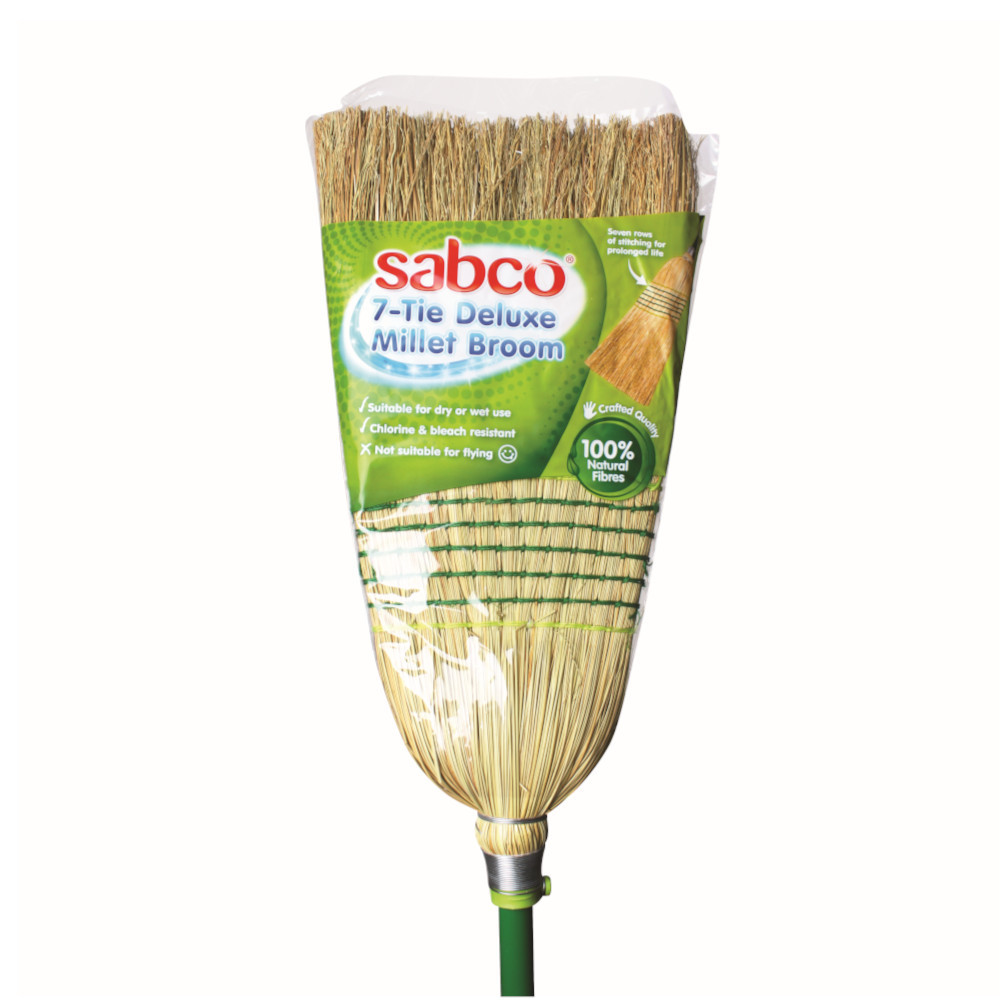Bunnings Broom Biosecurity Scare: A Farmer's Discovery
A routine shopping trip at Bunnings turned into a potential biosecurity crisis when a sharp-eyed customer, Keith Rowe, a former rice grower of 20 years, noticed something unsettling in a pack of millet brooms. Imported from China, these brooms appeared to contain something unexpected—what he believed to be rice plants. The discovery was made at a store in the NSW Riverina region, a key rice-growing area of Australia known for its favourable conditions and relative freedom from rice pests and diseases. Rowe, incredulous at his discovery, immediately shared his concerns on social media, tagging the Department of Agriculture, Fisheries and Forestry (DAFF) and sparking a rapid response from authorities.
The Biosecurity Concerns
Rowe’s initial reaction was one of disbelief. "I could see these grains in the head of the broom and on closer inspection I nearly fell over because I'm absolutely certain they were rice grains," he stated. The implications were significant. Australia's robust biosecurity measures are in place to prevent the introduction of invasive species that could devastate the agricultural sector and the broader environment. Rowe’s discovery highlighted the potential risk of introducing pests or diseases into this pristine rice-growing environment. He summarized the situation succinctly: "The biosecurity concerns are just mammoth." His social media posts, accompanied by images of the offending brooms, went viral, drawing widespread attention to the potential problem.
DAFF Investigation
The Department of Agriculture, Fisheries and Forestry swiftly responded to Rowe’s concerns. They initiated a full investigation into the imported millet brooms, examining whether appropriate biosecurity treatments had been implemented during import. A department spokesperson underscored the seriousness of the situation, stating that they are working with Bunnings to ensure that the potential risk is mitigated and that all appropriate measures are taken to prevent the spread of any potentially harmful substances.
Bunnings' Response and Biosecurity Measures
Bunnings, Australia’s largest hardware retailer, immediately took action upon learning about Rowe's discovery. Out of an abundance of caution, the company promptly removed all millet brooms from its shelves nationwide, pending the outcome of the investigation. A Bunnings spokesperson emphasized the company’s commitment to biosecurity, stating, "We take biosecurity very seriously" and detailing the stringent heat treatments (24 hours at high temperatures) and methyl bromide fumigation the product underwent to ensure any seed material that might remain is unable to germinate. The company is fully cooperating with the DAFF investigation and its own internal review.
Supplier Investigation
Bunnings is working closely with the two suppliers of the millet brooms, alongside the quarantine regulator, to determine the exact origin of the rice plants and to assess whether any breaches of biosecurity protocols occurred during the import process. A comprehensive investigation is underway to clarify how rice plants might have ended up in brooms labelled as millet. The findings of this investigation will determine the next steps in preventing similar incidents from occurring in the future.
The Ongoing Investigation and Australia's Biosecurity
The investigation by the DAFF is ongoing, and it remains unclear how many Bunnings stores nationwide stocked the brooms or the full extent to which rice plants were present in the products. Yahoo News has also reached out to DAFF for further comment. The incident highlights the ever-present challenge of maintaining Australia’s strict biosecurity standards, particularly with imported goods. While this specific incident involved imported brooms, the broader issue emphasizes the need for constant vigilance and stringent protocols to protect the country's unique ecosystem and agriculture. The event serves as a reminder of the significant consequences that even seemingly small oversights can have on national biosecurity. This case underscores the importance of consumer awareness and the role individuals can play in reporting potential biosecurity risks.
The Future of Biosecurity
The outcome of the Bunnings broom incident will likely inform future biosecurity procedures and strengthen import controls. The experience serves as a valuable lesson in the importance of vigilance in safeguarding Australia’s agricultural industries and natural environment. Ultimately, this event will increase awareness and emphasize the role of collaboration between consumers, retailers, and regulatory bodies in ensuring Australia's continued biosecurity protection. It also highlights how a single individual’s alert observation can have a significant impact on national biosecurity efforts. The vigilance of Mr. Rowe, and the swift response of Bunnings and DAFF should serve as a model for handling future similar cases.
This investigation will determine how this particular incident was able to happen, and hopefully, implement safeguards to prevent future occurrences of this nature. The focus of the incident lies in the importance of biosecurity within the agricultural and retail industry of Australia. The long-term effect of the case is likely to be a tightening of procedures regarding the import of goods and improved biosecurity measures for both Bunnings and other relevant businesses. The outcome of this will determine the future direction and effectiveness of the biosecurity measures within Australia.

















